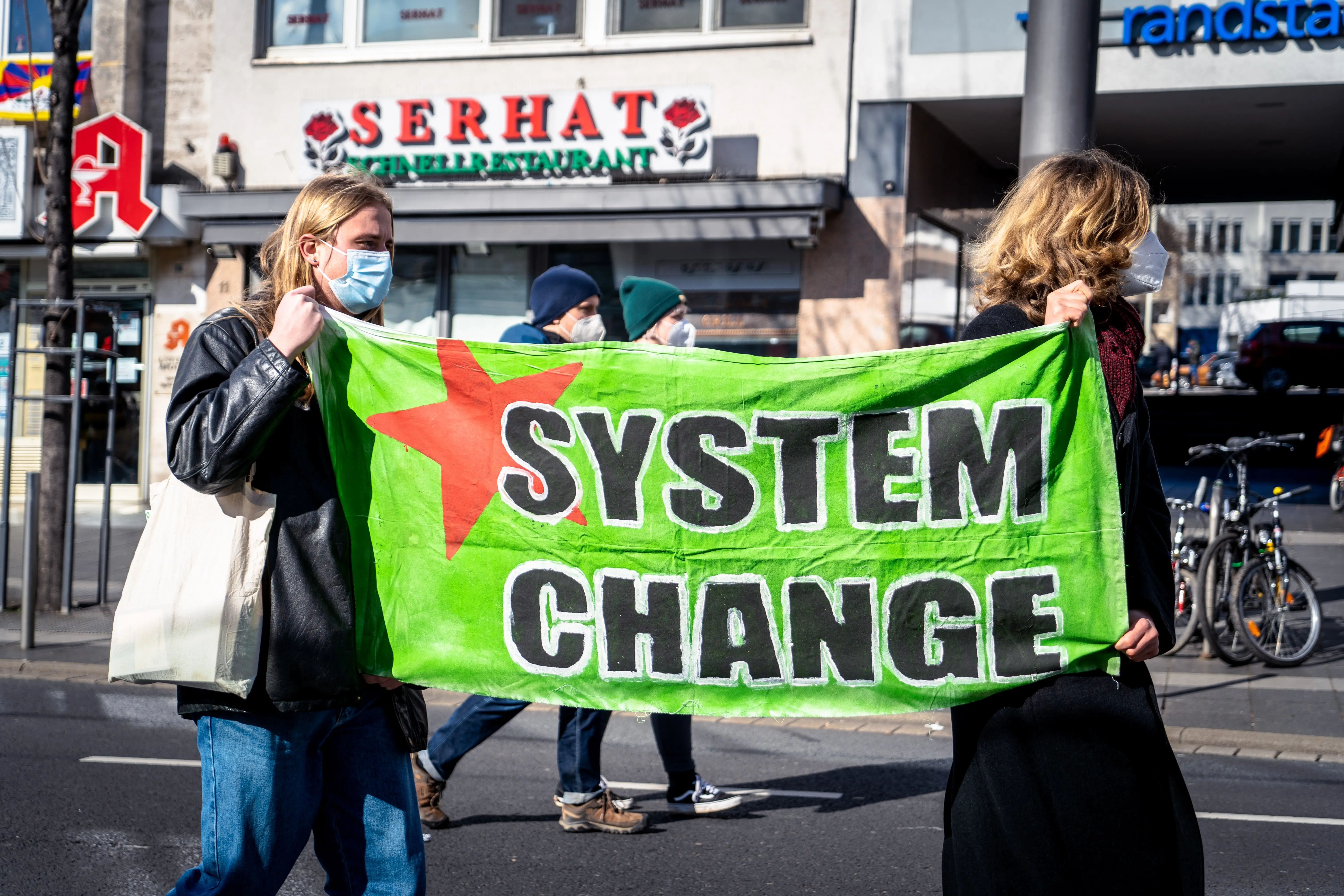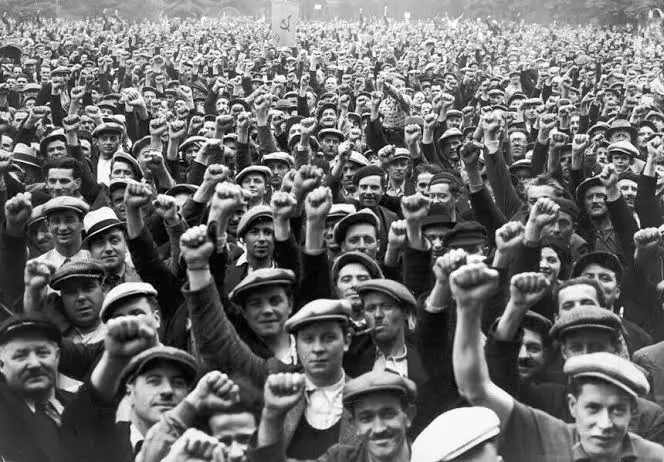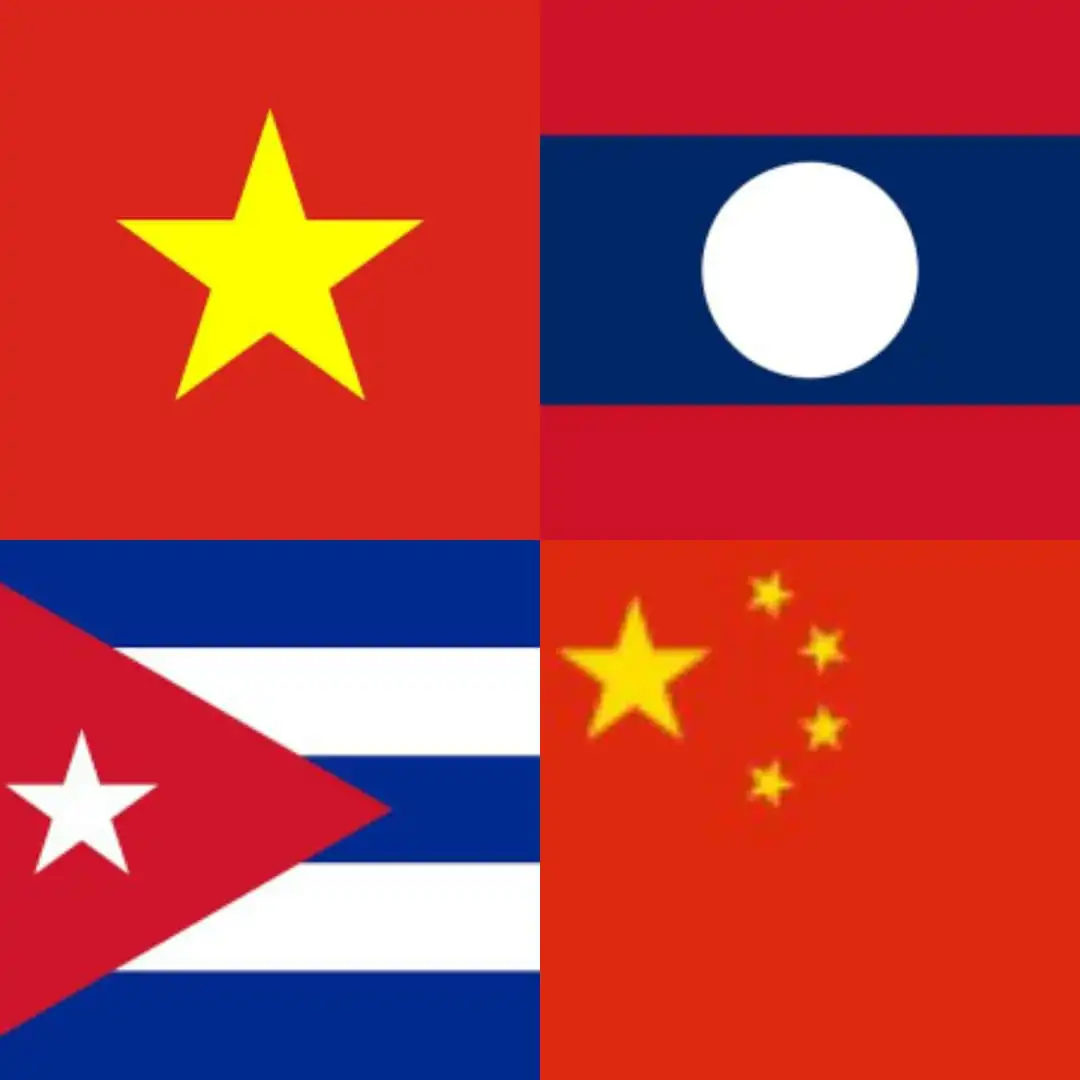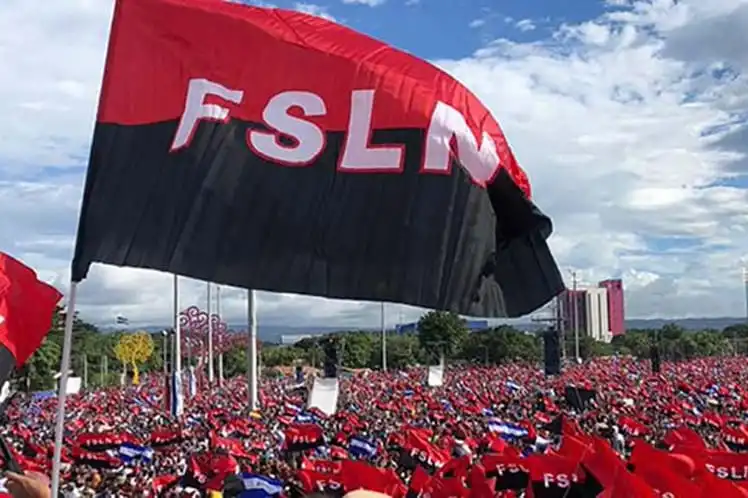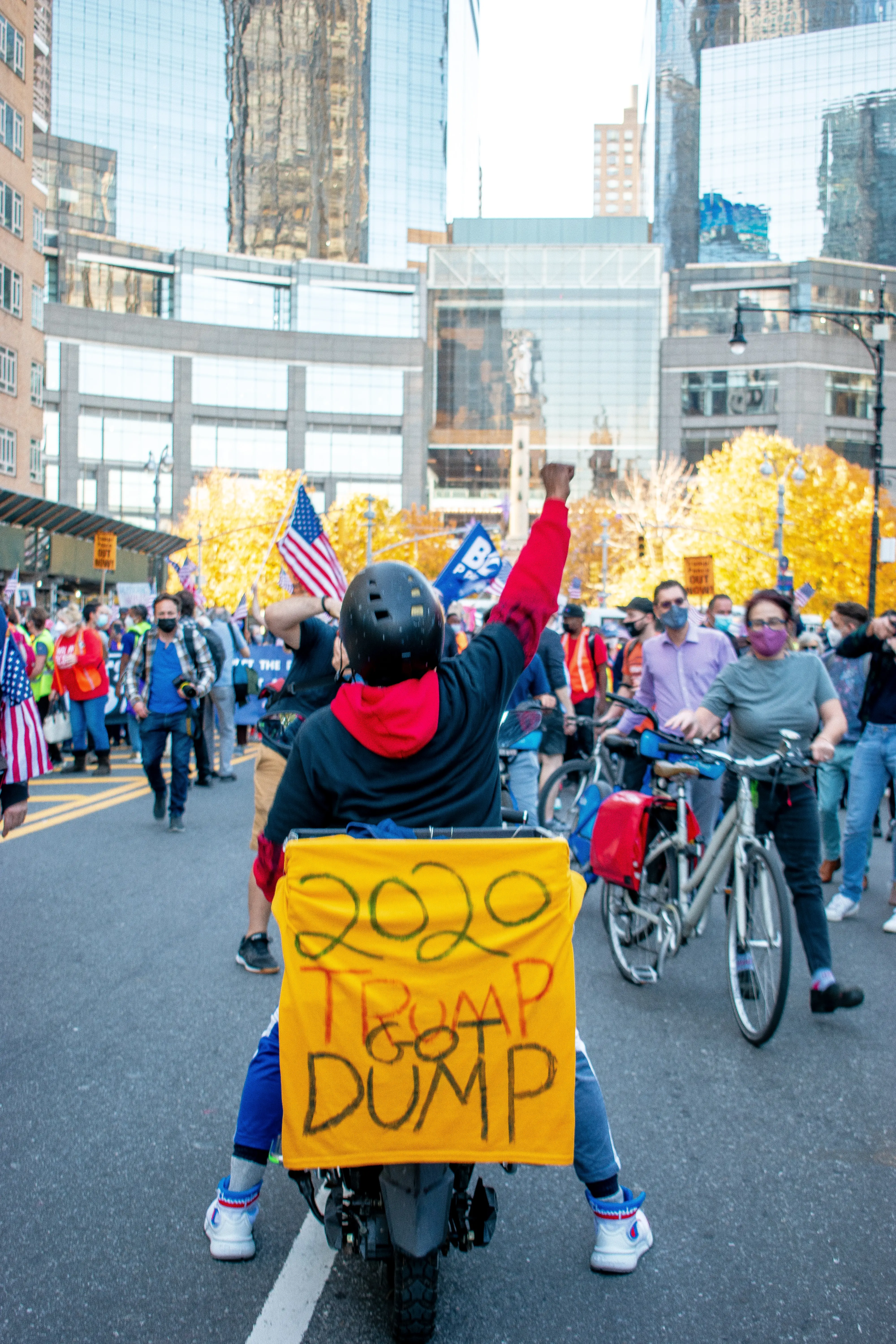Globalization can mean various things. In its neutral sense, it is simply international connectedness, including the transnational flow of ideas, people, money, culture, food, fashion, religion, music, and more. Almost no one is against this, as Noam Chomsky has suggested. In its more typical sense, globalization refers to economic globalization, specifically corporate capitalist globalization. And this type of globalization is top-down, profit-driven, authoritarian, anti-democratic, greedy, and exclusive. It is this form of globalization that has created the global justice movement that is called anti-globalization.
El Fisgón’s How to Succeed at Globalization (a 2002 graphic novel with a 2004 translation) tells a parable, a moral tale, about a “roadside vendor”, an individual running a small business. El Fisgón is the pen name of Rafael Barajas, a leading cartoonist in Mexico. As a cartoonist, El Fisgón conveys a lot of information and entertainment through his drawings with a sparse amount of words. Yet to get the most out of this book, which can stand on its own, we need to fill in the empty spaces with what we have learned from other sources.
El Fisgón uses certain terms — such as colonialism, imperialism, capitalism, and Marxism — because for him they are concise ways to communicate larger amounts of crucial information, just as we can with a sign, symbol, or a corporate logo, for example. A simple swoosh or golden arches can convey so much information, even with specific detail or depth.
Colonialism is the process of one country physically taking over another country to pilfer its wealth, especially through physical conquest and military occupation; imperialism is the process of one country financially taking over another country to pilfer its wealth, especially through investment, trade, and debt. They both have the same strategy, but they employ different means.
Under colonialism, weaker countries are slaves, as they are effectively owned by other stronger countries; under imperialism, poorer countries are technically free and no longer directly controlled, but are effectively slaves, because they must still do the bidding of the master countries. The poorer countries must follow the dictates of currencies, trade restrictions, interest rates, foreign investment, debt service, diplomatic relations, and so on.
Jamaica was colonized by England in 1655, lasting over 3 centuries before Jamaica got its independence in 1962. Independence brought freedom in a certain way, but it did not remove the heavy dependence that Jamaica had on Great Britain and the United States. With continuing control, constraints, and poverty, and increasing debt, many Jamaicans still do not feel free.
Under slavery, some people are slaves; under capitalism, those people are technically free, but they are effectively slaves because they must still do the bidding of the masters. Workers do not have to work for any given master, unlike slaves, yet they still must work for some master, who undoubtedly aims to pay as little as possible while trying to secure as much work as possible and without the worker having any control over the production process, work conditions, pay, hours, supplies, markets, etc. That is why Karl Marx referred to workers as wage slaves, not because workers are the same as slaves, but because the similarities are important and instructive, despite the differences.
This vital critique of capitalism is part of Marxism. Although Karl Marx is best known for advocating communism, probably about 95% of his work was concerned with the problems, indeed horrors — and occasionally the benefits — of capitalism. According to Marx, capitalism was a great improvement over slavery and feudalism, because it partially freed people, yet capitalism is not as good as socialism and communism, because people need to be further liberated to reduce and ideally eliminate exploitation and alienation. Marx was not one to simply bash capitalism because it is not good enough. With his intellectual honesty and political subtlety, he recognized capitalism’s benefits compared to the past, while lamenting its limits compared to the future.
In his essay “Wage Labor and Capital”, Marx described how under capitalism, workers need capitalists as much as capitalists need workers. Capitalists have capital — private, productive property and money that can potentially earn a profit — and need to hire workers to increase their capital. Workers do not have capital, so they need to sell their renewable labour power to capitalists. Capitalists and workers are dialectically related under capitalism, meaning that they mutually reinforce and reproduce each other, each needing the other to survive, and sometimes grow, just as lords and serfs were dialectically related under feudalism.
Yet, under another system such as socialism, workers could own their products and manage themselves, as is done with worker-owned cooperatives. Or it could be owned by the state, a local government, a non-profit organization, or a neighbourhood. The work might still need to get done — an open question — but there does not need to be outside capitalists who profit off the process, so the dialectical relationship under capitalism is broken under socialism and the workers would be freer.
This is analogous to teachers and students while in school. In school, we are dialectically related because students need teachers as much as teachers need students. But post-school, students can — and should! — still, learn, yet they no longer need official teachers, while teachers will always need actual students and therefore cannot survive as teachers without them. Likewise, workers will always be necessary, but capitalists are only necessary and able to survive as capitalists under capitalism.
To the extent that some people praise capitalism as the best system, they are often mistaken. What some like about capitalism is typically due to activists, organizers, unions, social movements, and political democracy, not the economic mode of production that is capitalism. Policies and programs like Social Security and Medicare, minimum wages and maximum hours, public schools and financial aid, public parks and public libraries, civil and human rights, environmental protections and pure food laws, welfare and subsidies, public research and quality control standards, etc. were all opposed by capitalists because they threaten capitalist power and profits. Further, even economically and materially, we see that goods are abundant all over the world — a seemingly endless amount of food, water, clothing, shoes, housing, medicine, phones, computers, pens, books, desks, chairs, beds, toys, and so on — yet despite the massive abundance, even surplus and waste, for those privileged enough to afford it, there is still tremendous deprivation, desperation, and despair in the world.
With the world producing more food than all humans can eat, over a billion people are overfed, while about a billion people are underfed, with about 25,000 people starving to death every day. With ample housing and the capacity to build so much more, so many are homeless and about a billion people live in slums of plastic sheeting, wooden pallets, and/or corrugated metal with dirt floors and without running water, while there is an excess of so-called second and often-vacant vacation houses, condos, and apartments. With so many medical services and medicine, people go untreated and uncared for. With so many schools, classrooms, and unoccupied seats, so many go without education, even literacy. With so much construction work to do in the world-building, teaching, tutoring, coaching, counselling, cooking, cleaning, repairing, nursing, healing, training, entertaining — so many millions remain unemployed.
As a tiny elite — perhaps between 1% and 5% — transfer wealth to themselves, while hoarding and flaunting economic wealth, political power, and social status, ordinary people, who are the vast majority, are left to make their way, to go along and get along, to scrounge for scraps and crumbs, to dream up and blame down, to stagnate and suffer, to sometimes fight amongst each other, to sometimes commit amoral and immoral acts against each other, and too often to unnecessarily die too early.
Further, the production of goods for private profit also entails the production of beads (e.g., air and water pollution, deforestation, greenhouse gases) that are socialized. These negative externalities are quite deadly. Goods are disproportionately distributed upwards in terms of class to those who are privileged, while bads are disproportionately distributed downwards in terms of class, race, ethnicity, sex, sexuality, and geography to the underprivileged, creating more difficult, dangerous, and deadly lives for the already underprivileged. While profits are privatized, internalized, and centralized for the elite, costs are socialized, externalized, and decentralized for the masses. And, as Arundhati Roy says in her Capitalism: A Ghost Story, “Capitalism is destroying the planet.” In David Korten’s When Corporations Rule the World, he also puts it succinctly, referring to global capitalism as a “suicide economy”, with homicide, genocide, and ecocide along the way.
El Fisgón suggests that we have to consider “How big businesses increase their profits through various degrees of exploitation, from the plunder of natural resources to the abuse of labour, from colonialism and war to monopolistic trade practices and planned layoffs [from poisoned food to a poisoned planet] ... [indeed] how the [so-called] free-market affects every aspect of our lives.” Whether we are cognizant of it or not, we as individuals and as countries are inextricably tied to capitalist globalization. With the work we do and the amount we are paid, the food we eat and the coffee, tea, soda, and water we drink, the clothes we wear and the electronics we use, the air we breathe and the oceans and atmosphere we share, we are all deeply affected by the global economy. We work and shop at corporations, often wearing their logos, which most of us can identify more readily than we can trees, plants, or birds. Too many of us seem to have Stockholm Syndrome, where we have come to identify with our captors. Recognizing this is one of the steps on the path of deprogramming ourselves.
Think of a taco truck, or even a roadside vendor selling tacos from a cart, compared to Taco Bell. There are important similarities and critical differences. They both need to be organized, follow laws, have a location, acquire supplies, create desirable products, attract and keep customers, sell Mexican food and drinks for more than it costs, set up and clean up, dispose of waste, and they both try to make a profit. Yet they also differ in various ways. There are differences in ingredients, authenticity, size, wealth, power, name recognition, advertising, division of labour, geographical spread, global impact, and so on. As a thought experiment, imagine that a government passes a supposedly neutral law that any business that sells tacos must have a special permit or a special filter that costs $1 million. While no taco truck or roadside vendor could afford it, Taco Bell could.
Wealth is derived from the exploitation of labour and nature, indeed capitalists exploiting labour to exploit nature, meaning hiring workers to transform natural resources, as well as through speculative investment, a form of legal piracy. Instead of selling tacos via Taco Bell, for example — financing, buying and renting locations, paying for insurance and utilities, advertising, sourcing materials, hiring workers, preparing food, cleaning up, disposing of waste, collaborating with industry, liaisoning with government, and more — one could simply invest in Yum! Brands, the umbrella corporation that also owns KFC, Pizza Hut, and other fast-food chains, without otherwise having any connections to the business.
The accumulation of wealth is pursued vigorously — and sometimes violently — without regard for anyone or anything else, even when it comes down to life or death, whether for an individual, a family, a community, a corporation, a country, a species, or a planet. Profit maximization is sociopathic, as capitalism institutionalizes and rewards greedy individual benefits, despite dire social, cultural, political, economic, and environmental costs, promoting greed over need, me over us, money over life, profit over people and planet.
While El Fisgón mainly engages in fiction, he deftly includes non-fiction when he briefly discusses the Opium Wars as “a perfect example of capitalist colonization”.
With England in colonial control of India, England wanted to profit as much as possible by exploiting India as much as possible, using slave labour as much as possible, and seeking wealth as much as possible. And to England — just as with corporations — one commodity was as good as another. In the case of India, the focus was on cotton, black pepper and other spices, tea, fruits and vegetables, opium, whatever could be stolen, exploited, transported, and sold.
England decided to import drugs into China, getting the Chinese addicted, passive, and desperate, while England collected the revenue from their slave labour and drug trafficking. When the Chinese government resisted, England spoke of the holiness of “free trade” and the British Army used the supposed sacredness of this hypocritical ideology to justify invading China. Colonizing part of the country, England imposed capitalist markets on China, thereby destroying local economies and indigenous social patterns, disastrously resulting in disruption, hunger, famines, plagues, eco-disasters, mass dislocation, starvation, death, social upheaval, and eventually revolution. With capitalism and privatization, food in China became a global commodity, meaning that food was not something just to be shared, but rather became something of value to be sold and exported to those who could financially afford it. The Chinese peasants became “free” to sell their food and free to compete with global monopolies, even while people became free to starve to death.
In the post-colonial world of imperialism, “Democratic facades help keep the business oligarchs in power” El Fisgón says, “allowing them to impose their deadly efficient programs all across the world.” The logic of capitalism and capitalist globalization — screw everything and screw over anyone to make a profit — has always been at odds with democracy, as well as basic ethical and religious principles.
As with all imperialist and capitalist endeavours (sometimes called neo-liberalism), the majority of people are excluded, socially, politically, and economically. The environment is plundered for short-term gain in extraordinarily unsustainable ways; labour is super-exploited; privatization is rampant so that more spheres of society can be ripe for generating profit; and there is the reduction or elimination of any systems that serve the people (e.g., social security, education, healthcare, food, housing, transportation, water, welfare, and other public services and social safety nets) because these only help people, not corporations; and democracy is hollowed out, leaving only a pretty facade.
“The business of business is business”, or as Milton Friedman, University of Chicago economist and winner of the 1976 Nobel Prize in Economics, put it another way, “the social responsibility of business is profit”. In this view, greed is not only good for the greedy but is considered good for society too. As with Adam Smith’s “invisible hand” of the market and Ayn Rand’s libertarianism, selfishness is ideologically rationalized, arguing that the benefits of individual and capitalist greed trickle down and ripple out to the rest of society. The fact that they mostly do not is an inconvenient fact, therefore generally ignored.
In Greek mythology, Cassandra is punished by Apollo for rejecting his advances an age-old patriarchal problem — and the curse that he placed on her was that Casandra warned others of impending danger, yet they did not heed her warnings. El Fisgón’s character Cassandra concludes that “All business is a scam”, trying to warn us about the perils of capitalism, imperialism, and globalization. Will we heed her warning? What about the warnings of the climate crisis, resource wars, environmental refugees, fascism, and unhealthy western diets? Will we heed those warnings?
All business is a scam because all business involves maximum exploitation of labour, nature, markets, and minds, trying to pay the minimum for supplies, labour, energy, and disposing of waste, trying to give the least in taxes to the government while trying to get the most taxpayer money from it, charging the highest possible prices to consumers, over-producing, and doing whatever it takes to sell the most products, regardless of need, want, or any social, political, economic, and environmental consequences. In that sense, all businesses — even the best of the bunch, despite whatever good they may do — are problematic, indeed, are scams. And yet, these corporations have become many of the largest economic units in the world and are largely in control of our political-economic system.
Transnational corporations practice the art and science of how to succeed at globalization while failing the world. That is the inevitable result of a system that encourages and rewards the sociopathic pursuit of the maximation of profit. A global justice movement needs to stop this system to save the world.
About Writer: Dan Brook teaches in the Department of Sociology and Interdisciplinary Social Sciences at San Jose State University, a multicultural, working-class university in Silicon Valley.
